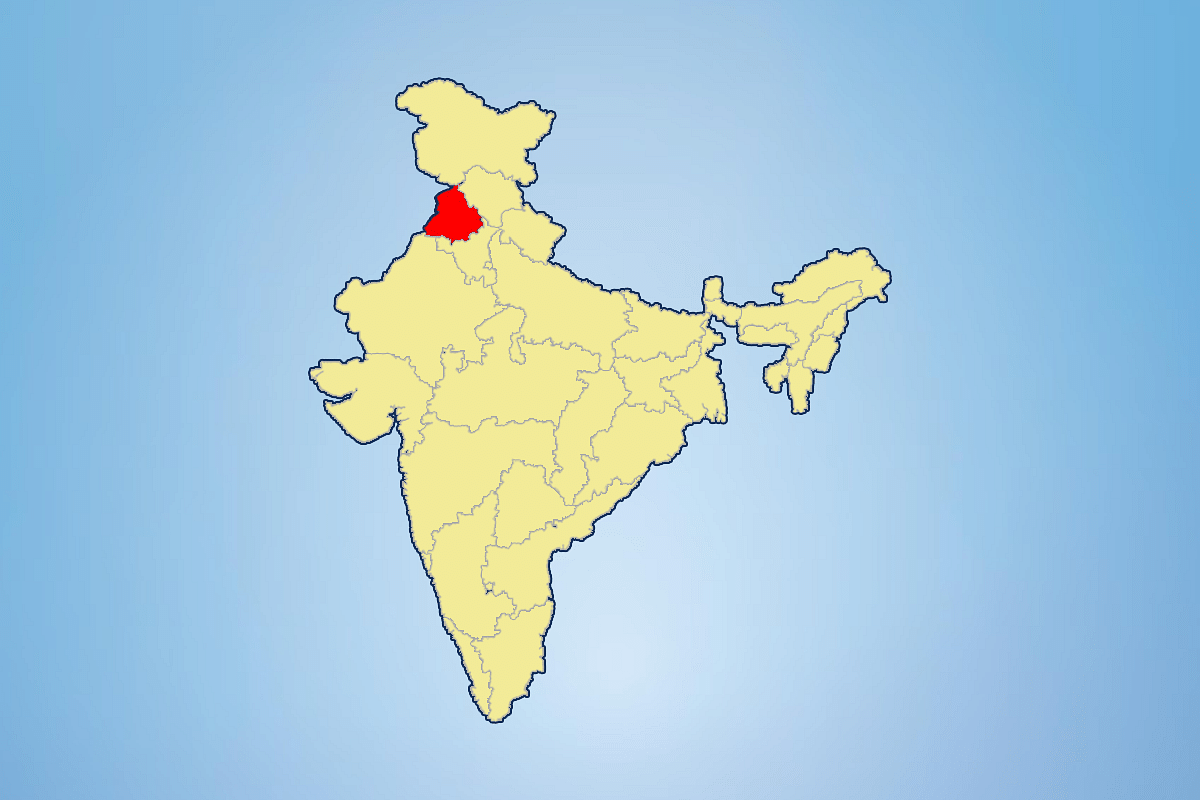Economy
A Food Procurement System Loaded In Favour Of Punjab Is No Longer Sensible
- It would be politically sensible and economically pragmatic and constitutionally correct for food subsidy cash to be handed over to states to procure at MSPs or even below if they think it is fine.
- The Centre should focus on only the national-level buffer stocking operations.

State of Punjab
The ongoing agitation by farmers from Punjab, calling for the total withdrawal of the agricultural reforms legislated by the Narendra Modi government, gives us an opportunity to re-examine the whole system of procurement, minimum support prices (MSPs), and Centre-state roles in agriculture policies.
The agitation probably has some silent support from farmers in Haryana and Uttar Pradesh, but their voices are muted because Bharatiya Janata Party (BJP) is in power there.
The Modi reforms basically involve allowing farmers to sell outside Agriculture Produce Marketing Committee (APMC) mandis and enable contract farming, thus giving farmers better choices. The reforms have brought to fore the lopsided way in which the Food Corporation of India (FCI) has been favouring some states over others in terms of MSP-based procurement.
Statistics from the FCI tell us the extent of Punjab’s dominance in procurement. In the rabi marketing season of 2019-20, which is largely about wheat, Punjab hogged nearly 38 per cent of procurement. In the kharif season of the same year, which is more about rice, the FCI procured nearly 21 per cent of the total amount from Punjab. Only Andhra Pradesh and Telangana combined had higher comparable shares, and that too only if put together.
The simple conclusion is this: the whole MSP regime and procurement system is tilted towards Punjab, which means that the bulk of taxpayer money is going to boost the incomes of Punjab’s relatively wealthy farmers. Now you know why this is more about protecting vested interests than real concern for small and marginal farmers, who anyway don’t benefit much from MSPs and procurement, given their lower ability to produce marketable surpluses.
While the reforms clearly must not be rolled back, the Centre should consider making changes in the entire system of food procurement by devolving most of the cash and jobs to states.
In the current state, a few producing states – Punjab, Haryana, (western) UP, Chhattisgarh and Madhya Pradesh – swallow the lion’s share of food procurement subsidies, when these ought to be more evenly distributed.
Here’s the rub.
As long as the Centre procures so much of rice and wheat directly, the problem will remain a Centre-state political timebomb. But if the procurement was done by consuming states, with equitable parts of the central subsidy cash being shared with them, then the real conflict will be between consuming states and producing states. That is how it should be.
While the Commission on Agricultural Costs and Prices (CACP) can decide MSPs, the Centre should procure only those quantities that are needed for a reasonable national buffer stock. States should procure the rest, with finances devolved from the central pool, and their own resources.
Second, agriculture is a state subject, and states should be worrying about what they should produce and who they should subsidise. But, on the contrary, it is the Centre that is carrying the can for everybody, thus offering itself as an easy political target for state governments led by opposition parties. The latter have no stake in reforming agriculture, since they can always lay the blame for failures with the Centre.
It would be politically sensible and economically pragmatic and constitutionally correct for food subsidy cash to be handed over to states to procure at MSPs or even below if they think it is fine. The Centre should focus on only the national-level buffer stocking operations.
It is time to invert the procurement system and stand it on its head.
Support Swarajya's 50 Ground Reports Project & Sponsor A Story
Every general election Swarajya does a 50 ground reports project.
Aimed only at serious readers and those who appreciate the nuances of political undercurrents, the project provides a sense of India's electoral landscape. As you know, these reports are produced after considerable investment of travel, time and effort on the ground.
This time too we've kicked off the project in style and have covered over 30 constituencies already. If you're someone who appreciates such work and have enjoyed our coverage please consider sponsoring a ground report for just Rs 2999 to Rs 19,999 - it goes a long way in helping us produce more quality reportage.
You can also back this project by becoming a subscriber for as little as Rs 999 - so do click on this links and choose a plan that suits you and back us.
Click below to contribute.
Latest